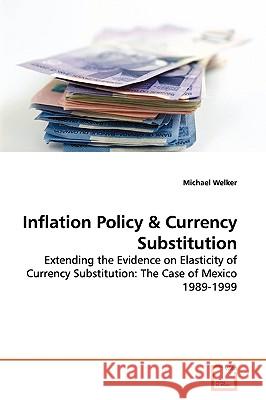Inflation Policy » książka
Inflation Policy
ISBN-13: 9783639142099 / Angielski / Miękka / 2009 / 80 str.
Following the collapse of Bretton-Woods and the advent of floating exchange rates, economists noted the emergence of demand side substitution of the worlds currencies, a phenomenon that has become known as dollarization and currency substitution. Currency substitution presents a number of problems to the policy maker and to the country experiencing the phenomenon. In this book, Michael J. Welker offers a summary of several key considerations that motivate this and other research on currency substitution. The discussion assumes the traditional welfare concept in macroeconomics that any reduction in the effectiveness of monetary and fiscal policy impairs the efficiency of resource allocation and the rate of economic growth. In theoretical work on currency substution one line of thought suggests that real exchange rate depreciation will result when a small open economy revalues under currency substitution, while another line of thought poses that real exchange rate appreciation will occur. Evidence from Mexico in the last decade of the 20th Century is presented in this text to contribute to the debate.











